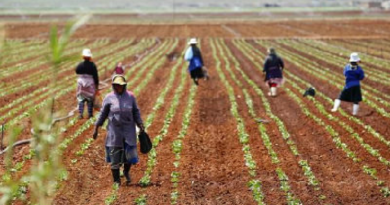Pepkor annual profit falls but market share grows
South African retailer Pepkor Holdings on Monday reported a 34% fall in annual profit due to Covid-19 trading restrictions but said it had gained “significant” market share since May, thanks to consumers looking for affordable products.
The budget clothing and furniture retailer’s stores were barred from trading during an initial five-week lockdown earlier this year, resulting in about R5 billion ($325.2 million) in lost sales. The group was also unable to trade its full merchandise range until June.
But pent-up demand after stores re-opened from May, and increased social grant payments, which placed additional money in shoppers’ pockets, offset a sales slump recorded in the third quarter of the year-ended September 30.
This resulted in overall sales for the year ended September 30, growing by 3.6% to R63.7 billion and the company said sales momentum had continued post year-end.
Consumer focus on less discretionary and more affordable products resulted in “substantial” market share gains in clothing, footwear, homeware and cellular, group CEO Leon Lourens said.
Headline earnings per share (HEPS) from continuing operations, however, fell by 34.4% to 62.6 cents in the year and Pepkor swung to a R3 billion loss from a profit of R2.1 billion previously after writing down the value of its businesses by R4.8 billion.
Pepkor said it reduced its net debt by R6.9 billion to R7.1 billion, “facilitated by strong cash generation, good credit book collections and the accelerated book-build”, which raised R1.9 billion.
The retailer, majority-owned by Steinhoff, said it would close its 13 stores in Uganda by the end of December “as expansion into East Africa was no longer feasible”.
Lourens told Reuters that the company was not getting the turnover that it was hoping for nor the number of stores it needed to scale up in that country.
Hurt by the devaluation of currencies in countries like Angola, Zambia and Zimbabwe, the retailer is not opening any new stores in Africa or allocating more capital as part of consolidation plans until market conditions turn favourable.
Source: moneyweb.co.za


